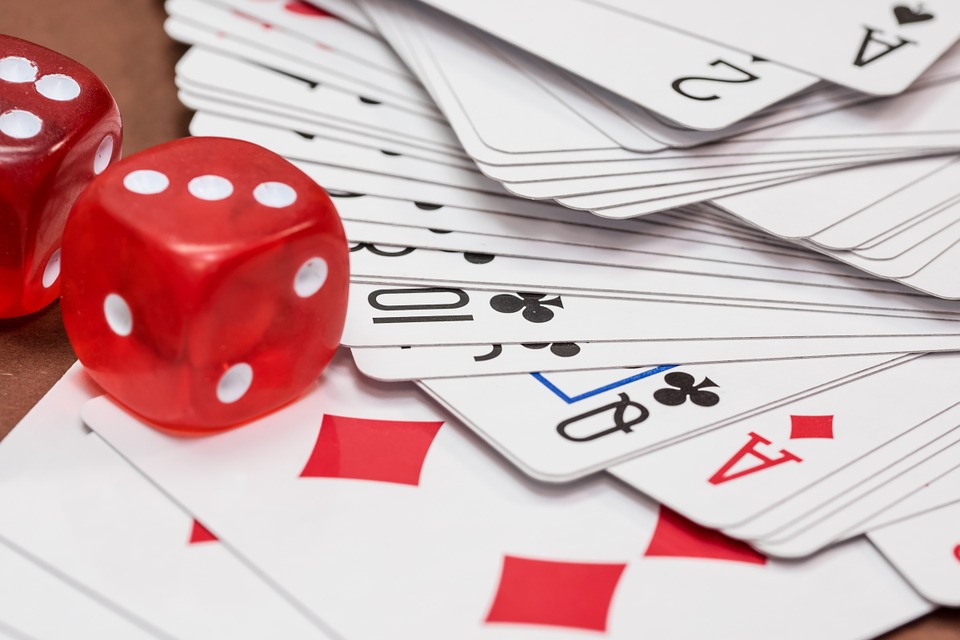Card games originated in China and have been around for thousands of years. Eventually, they made their way over to Europe. One iteration of card games invented was the gin card game, which came with its own variations including gin rummy. While its history is unclear,
Gin Card Game – What is Gin Rummy?
Gin rummy is a gin card game that came about in the 1800’s. It was invented with the intention of being less spontaneous than knock rummy but faster than standard rummy or speed card games. According to John Scarne, a musician, and writer, it was derived from whiskey poker, but there is not a much factual basis for this theory.
How to Play
Playing a gin card game is simple, easy and fun. Gin rummy is played with only one standard deck of cards. These cards are ranked from high to low with the king being the highest ranking card and the Ace card being the lowest ranking card. You win rummy by getting to a previously agreed upon the number of points before your opponent. Typically, this is 100 points. We have included a helpful glossary in case you are not very familiar with playing cards in the gin card game.

Glossary
Here are the definitions of some commonly used words when describing how to play a gin card game.
Melds
A group of cards that results in the player holding them earning points.
- Sets – a meld consisting of three or four cards with the same rank, such as an eight of hearts, an eight of diamonds and an eight of spades.
- Runs – a subset of meld consisting of three or more cards in a sequence of the same suit.
Knocking
Knocking means ending the play at your turn if you have no sets or runs after drawing. This is done by discarding one card face-down on the discard pile while exposing your whole hand, arranging them as best you can into sets and runs. You may not discard the card you just drew from the discard pile if applicable.
Deadwood
Deadwood means there are unmatched cards after knocking. The value of your total deadwood must be 10 points or fewer.
Going Gin
Knocking with no unmatched cards. This comes with a 20 point bonus while the other player scores nothing.
Undercut
When the knocker did not go gin, and the counts are equal, or the knocker’s count is greater than his or her opponent’s. The knocker scores the difference between the counts, if any, plus a 10 point bonus.
If there are two players, each player is dealt ten cards. As there are twelve face cards in a deck, it is possible to achieve 100 points and win the game with the first hand you are dealt. However, this is highly unlikely.
Tips, Strategies, and More

In gin rummy, face cards are worth ten points; numbered cards are given points based on their face value and aces are only worth one point. You are allowed a run of one ace of hearts, one two of hearts and one three of hearts. However, you cannot have a run of a queen of clubs, a king of clubs and an ace of clubs.
This is because the ace is the lowest card in this gin card game. You can knock at any point in the game, including on your first turn, as long as you have no more than ten deadwood points. Early in the game, it is most likely your knock will be to your advantage. Afterward, think of the casino and card themed party decorations for memorable events.
Be the First to Knock.
Knocking early gives you the opportunity to catch your opponent with enough deadwood for you to score. Even knocking with 10 deadwood points early on in the game can give you an advantage before your opponent can undercut you. If you choose to wait for a better hand and not knock, then your opponent does, he will earn the difference between your two dead wood.
Don’t Draw Discards Unless it Can Complete a Run.
The disadvantage of drawing from the discard pile if it won’t complete a run for you is twofold.
- You lose the opportunity to see the next card in the deck which may complete your run.
- Your opponent will be able to see the card you drew and deduce which card you need to complete your run. For example, if you have a nine of hearts and you pick up a discarded nine of clubs, if your opponent draws a nine of spades, he or she will not discard this because then you will be able to achieve a run.
Watch Your Opponents Draw From the Discard Pile.
If your opponent picks up a five of spades and you want to know whether to discard of a four of spades or four of diamonds, discard the four of diamonds first. The four of diamonds may be the one card your opponent needs to make a run.
Hold on to High Pairs or Consecutive Cards.
It is common advice to discard higher value cards instead of lower value cards, so expect your opponent to do this if you have never played him or her before. The idea behind this is, one deadwood face card means your other nine cards must be melded to knock, and that would result in a weak knock.
Players hold on to the lower value cards to increase the chances of an early knock as mentioned in the first tip. However, if you hold on to yours during the first half of the game, you may be able to meld face cards if your opponent is using the strategy of discarding face cards. Holding onto high pairs gets riskier as the game goes on, however, so be careful.
Don’t Make Weak Knocks Late in the Game.
By the time you reach the halfway point in the game, your opponent has probably gotten rid of the worst of his deadwood. If you knock with 10 points late in the game, you will very likely be undercut.
Pay Attention to Which Cards are Being Discarded.
- As mentioned above, you will have a good idea of what card your opponent needs to meld, either via run or set.
- If you have a sharp memory, you may notice two queens have been discarded. If you have two queens in your hand and you are playing only one deck, you know these high-value cards will never meld, and you should discard them.
It is possible for gin rummy to end without a player winning. This happens when there are no cards left in the dealer’s customized deck, so the players just start the game over. However, there are rules in place for if you are playing for money and the game comes to a conclusion with a winner. Once a player’s cumulative score reaches 100 points, he or she receives an additional 100 point bonus.
If the loser did not win a single hand, the winner’s bonus is 200 points. Additionally, each player adds 20 points for each hand they won. These additional points cannot be counted towards the 100 points necessary to win the game. After the bonuses have been summed up, the player with the lower score pays the winner an amount proportional to the difference between their scores.
Variations

Gin Rummy
Gin Rummy is a variation of traditional rummy, but it also has variations of itself. One example is straight gin. After shuffling, the opponents are required to play until one of them can go in. Knocking is not allowed.
Oklahoma Rummy
Oklahoma Rummy is a version of the gin card game, where the first upcard determines the maximum count at which a player can knock. If the upcard is a spade, the value of the hand you knock will double. If you have an eight of spades, you can knock with up to eight deadwood points in your hand and your points would double if you won the knock.
Single Match Rummy
This variation is played when the rounds continue until one player reaches 100 points in the gin card game.
Multi-Match Rummy
Multi-match Rummy occurs when match scores are reset at the beginning of each match until a player reaches the predetermined number of points, like 600.
Conclusion
Not only is it fun to play a rummy gin card game, but it is also intellectually stimulating, and you can use as much strategy as you would like in the game. If you are facing a new opponent, knowing common strategy helps because you can make decisions to mitigate the risk of him or her using those strategies until you are provided with information to the contrary.
Remember, knock early, only knock strong late in the gin card game, by the halfway point rid your hand of large dead wood, don’t pull from the discard pile unless it completes a run and pays very close attention to your opponent’s draws from the discard pile. You can play for cash in locations where gambling is legal, fake chips at a party or just for fun with no winner and no keeping score with a pencil and paper.
Featured Image: CC 0 by Public Domain, blickpixel, via Pixabay


